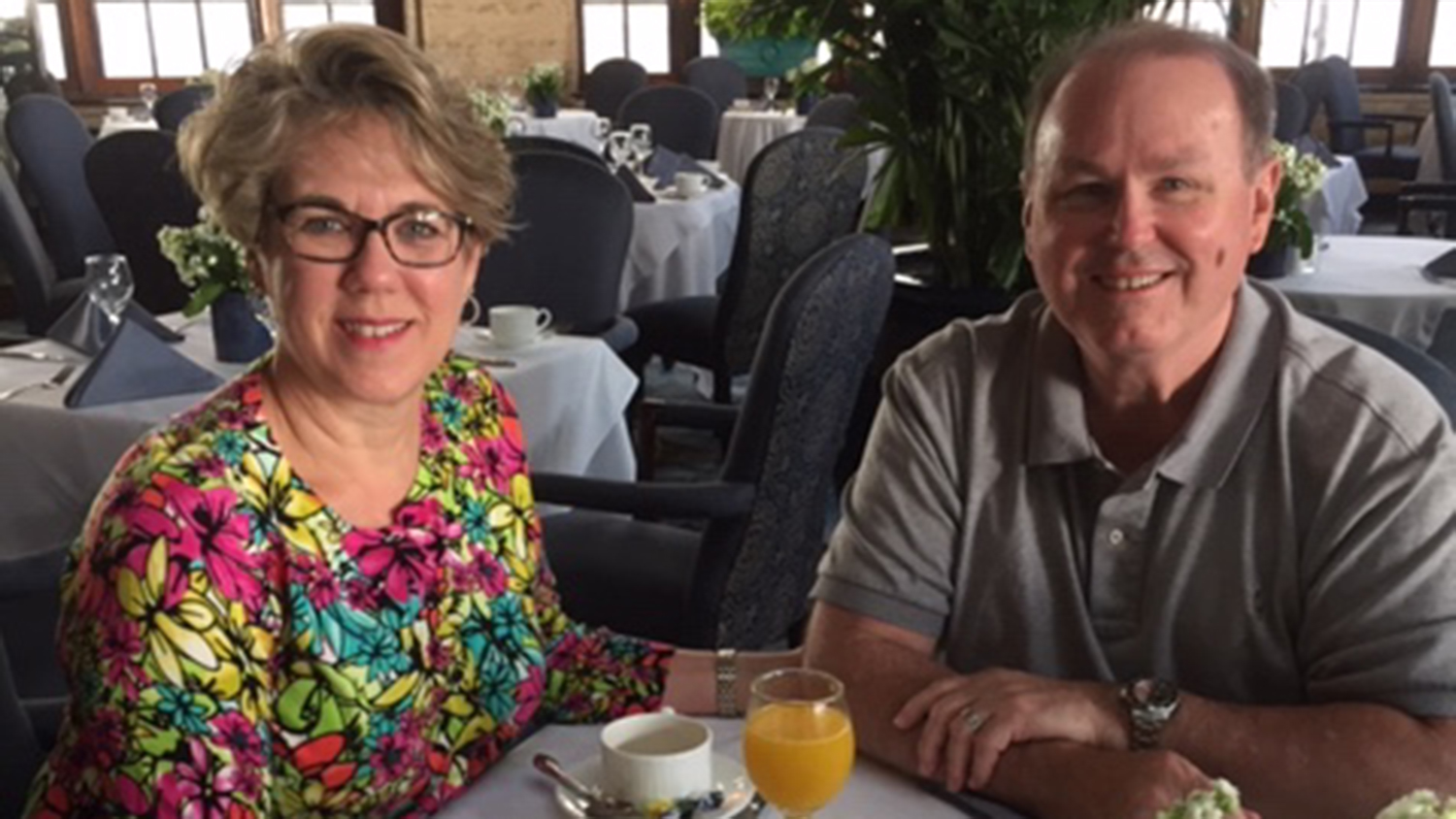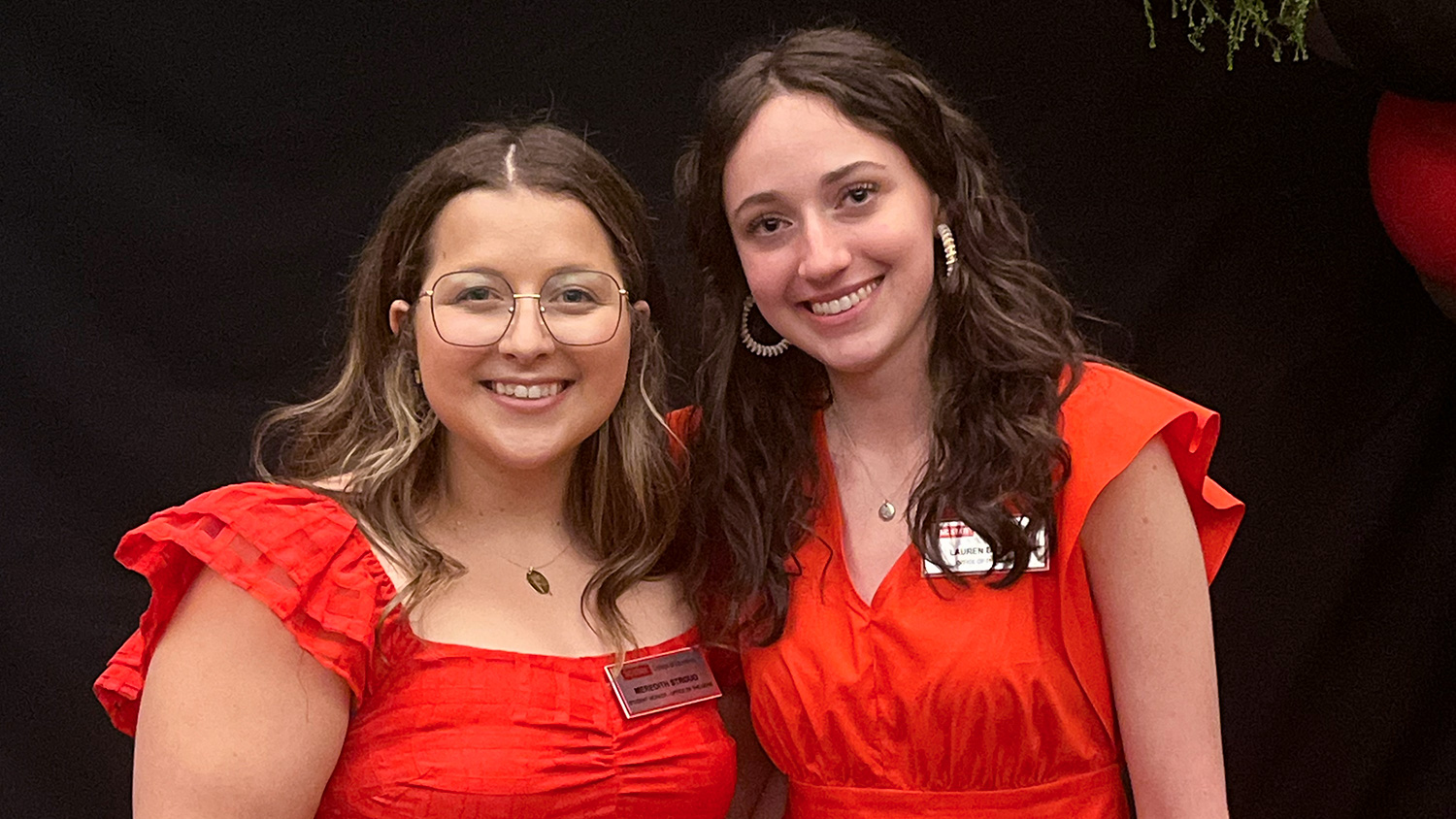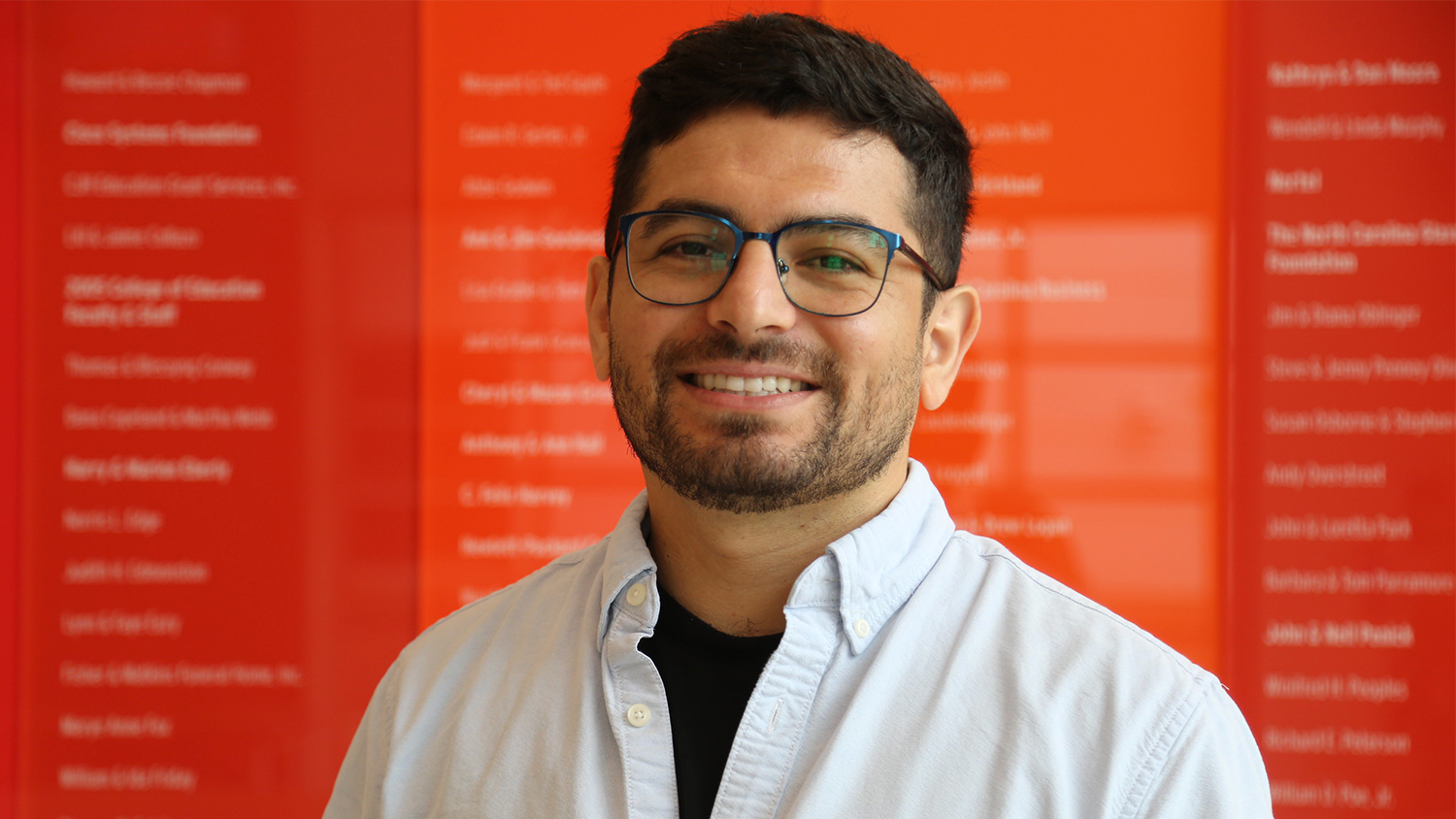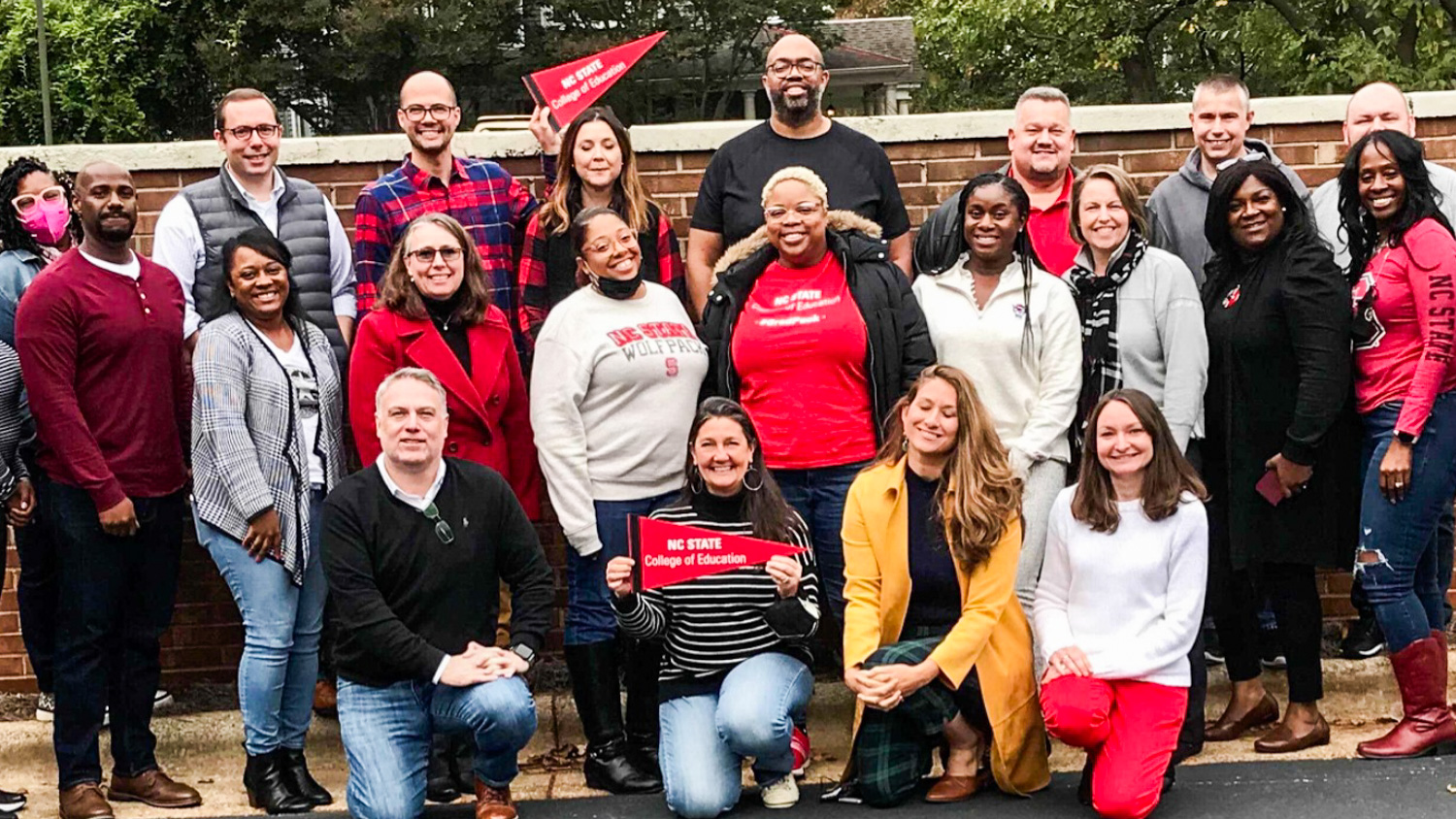Why I Give: ‘I Received an Exceptional Education at NC State. I Want Future Teachers to Have the Same Opportunity,’ Says Catherine “Cathy” Faircloth Hairr ’79

Editor’s Note: This is part of a monthly “Why I Give” series in which NC State College of Education alumni, students, faculty and staff share why they support the college.
In her own eyes, Catherine “Cathy” Faircloth Hairr ’79 was always a teacher. As early as five or six years old, she would pull out a chalkboard and teach her two siblings and neighborhood kids math. She would go on to earn her bachelor’s degree from the NC State College of Education and then serve as a high school math teacher for 35 years in Raleigh, North Carolina.
Now, she and her husband — Ron, a 1978 civil engineering graduate from NC State — will make it possible for others to complete their college degrees and pursue their chosen profession. They have established a gift in their estate that will be shared equally between NC State’s College of Education and College of Engineering that will provide full cost of attendance scholarships every year for two students in need.
“Ron and I have always wanted to help those who have the intellect and initiative to attend NC State University, but do not have the monetary means,” Cathy Hairr says. “Investments in education are always worthwhile, and we are happy knowing that we can help others to become successful teachers or engineers with our endowed scholarships.”
In the Q&A below, she talks about why she became a teacher, lessons learned throughout her professional career, why she supports the college and how she hopes her support will help prepare future teachers. The following is edited for length and clarity.
[spotlight-box label=”” heading=”About Catherine “Cathy” Faircloth Hairr” cta=”” url=””]
Hometown: Morehead City, North Carolina
Family: Husband, Ron, a 1978 graduate of the NC State College of Engineering
Education: Bachelor of Science in Mathematics Education, NC State College of Education
Role: High School Mathematics Teacher and National Board Certified Teacher in Mathematics
Career: Taught for 35 years before retiring in 2014; Athens Drive High School (2 years), East Wake High School (27 years), Ravenscroft School (6 years)
[/spotlight-box]
Why did you become a teacher?
I’ve always been a teacher. When my best friend, Melanie, and I were about five or six years old, we would play school. We had an entourage of siblings and neighborhood kids that were two and three years old. We had a little chalkboard where Melanie taught reading and English and I taught math until everyone went to ‘real school.’
A real turning point for me was during my senior year of high school. I took drafting classes my sophomore and junior years because I thought I wanted to be an architect. I applied to NC State in the fall of my senior year to attend what was then called the School of Design.
In January of my senior year, my former geometry teacher asked me to work with two students who were struggling in her basic math class. They were able to add, subtract, multiply and divide, but were unable to grasp the concepts of fractions. Every day I met with those two students, using manipulatives to create an environment of interactive learning of basic fractions. Meeting with these students was the highlight of my day and as the excitement of teaching these kids continued daily, I realized that I needed to call NC State to change from the School of Design to the College of Education to become a math teacher.
[giving-form heading=’Support Educators’ align=’right’ submit_to=’https://give.ncsu.edu/education’ cta=’Make a Gift’] As a retired math teacher, Cathy says she gives to the NC State College of Education because she wants future teachers to have the same exceptional education and experiences she had. Join Cathy in her support of the college and help us prepare more extraordinary educators like her. [/giving-form]
There are people who are innately teachers and I know that my gift is teaching. I have the gift of explaining concepts in various ways. My phrase has always been: ‘I am not a mathematician. I am a teacher and mathematics is my vehicle.’
You worked as an educator for 35 years. What kept you in the classroom for so long?
Teaching was never a job. I just kept going to school and learning more every year. I continued to teach because unlike most jobs, teaching had a beginning and an ending. Every June, I reflected on the school year — curriculum, methods of teaching, activities in lieu of lectures, technology to enhance learning, and discovery lessons. So each summer was about making the next school year better for the kids with new ideas and strategies, making the mathematics more effective and exciting.
[spotlight-box label=”” heading=”3 Lessons to Future Educators from My 35 Years in the Classroom” align=’left’ cta=”” url=””]
Let your students know that you care about them as individuals and that their success in the classroom is important. Once students know that you care about them, they begin to care about learning and doing their best each and every day. They become invested in their education as they strive to excel by investing time to master concepts.
Listen to your students. All teachers have had moments when they have to correct the behavior of a student. As a new teacher, I often just ‘laid’ into a student in the hall, which was not only ineffective, but really never solved the behavior problem. I changed my approach by asking a student a simple question, ‘What is going on today?’ After listening to the student (without interrupting), I reminded the student that we all have life issues and we cannot let those issues interfere with learning. I encouraged them to take a few moments to get things together, and come back into the classroom when they were ready to engage in learning. Giving students the chance to vent and allowing them a moment to talk almost always corrected the behavior problem.
Be in contact with parents. Parental contact is ultra important in the success of students. Early conversations with parents about a student’s failure to perform is as easy as beginning with ‘I’m concerned about Johnny because he did not perform as well on his last test … .’ Parents immediately know that you care about their child’s success and are willing to discuss ways to turn things around. I will say that I am an advocate of a phone call rather than email because parents can hear the concern in your voice, and I believe that solutions are better verbalized between teacher and parents.
[/spotlight-box]
There are different types of gifts you can make to NC State. Why did you and your husband decide to do a planned gift that will provide scholarship support to students?
Ron and I have always planned for the worst and hoped for the best in all aspects of life. Therefore, saving and planning for our future has always been a part of our marriage. As we have aged, we realized that we wanted to impact the future of kids like us. Both of us worked and paid for our education, which often interfered with time for studying, and we were unable to experience semesters abroad. With our gift, NC State will invest our money so that it generates scholarship funds to continually assist students in financial need. We are hopeful that our endowment will impact lives and provide exciting opportunities for students who wish to attend NC State but are unable to afford it.
Why did you decide to support students in NC State’s College of Education and College of Engineering through the planned gift?
Ron and I both know education is the key to a successful life. We both treasure our education because not only did we receive an exceptional education at NC State, but we also had exceptional experiences with our coursework, faculty and peers. Without our education, my husband and I would not have had the careers and the life that we have had and the opportunity to give back to NC State. We want other kids to have the same educational opportunities in education and engineering that we had without the burden of working while in school.
What do you miss about teaching?
I miss the curriculum and the kids. Every day was about the engagement of students and the excitement of learning. I began my teaching career as most teachers of my age did — lecturing. However, the second half of my career, I became a mentor teacher and was exposed to instruction through Bloom’s levels of questioning, which created an exciting atmosphere of interaction and exploration between students. Using technology, especially in geometry (Geometer’s Sketchpad), provided students with opportunities to explore and formulate ideas collaboratively, which is a really cool experience for a teacher to observe. The excitement of exploration and hearing discourse between students and/or teachers is what solidifies learning. Giving students the opportunity to explore, to discuss, and to support ideas is what makes students enjoy and appreciate learning.
- Categories:


